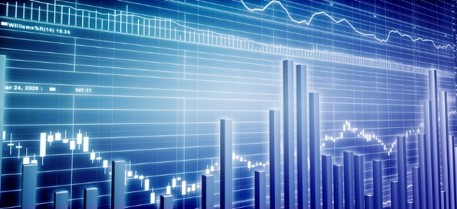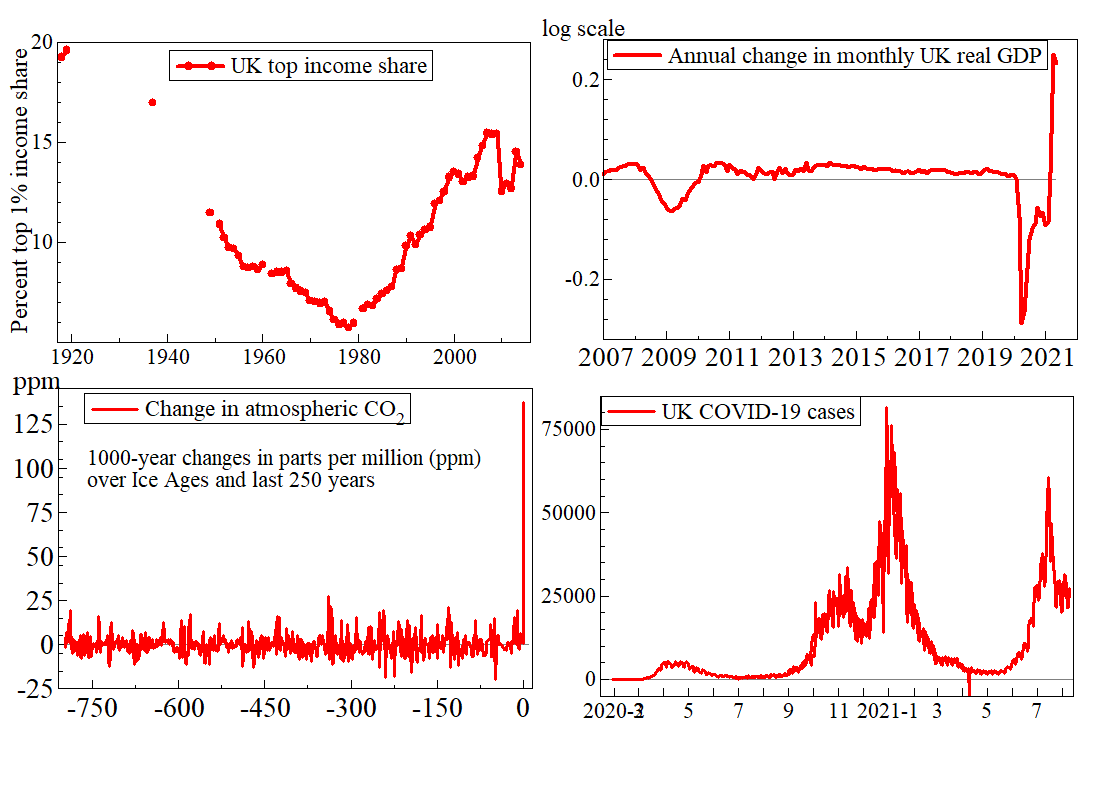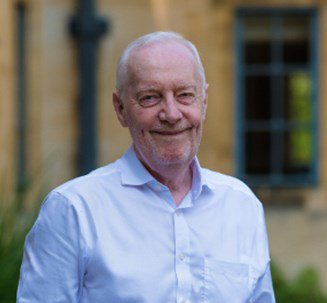
Forecasting tends to be a heavily scrutinised discipline at the best of times. Currently, it is facing a barrage of challenges from the Sars-Cov-2 global pandemic, economic instability, and climate change. Thus there are many shifts and turns along the way causing forecasts to go awry. In “Forecasting facing economic shifts, climate change and evolving pandemics”, Jennifer Castle, Jurgen Doornik and David Hendry, explain how more robust forecasting devices can be used to help avoid systematic mis-forecasting.
Economic outcomes, CO2 emissions and pandemics are issues that are intrinsically intertwined. Each is impacted by human behaviour, which can be unpredictable. When viewed individually, each of these disciplines involves their own forecasting challenges, but one thing they all have in common is their non-stationarity. Real life does not always follow a smooth pattern. There are major shifts that cannot be anticipated, and the current COVID-19 pandemic is a perfect example. The economic, social and environmental impacts that resulted from the lockdowns could not have been accounted for in previous forecasts as they were unprecedented decisions.
Real life does not always follow a smooth pattern. There are major shifts that cannot be anticipated, and the current COVID-19 pandemic is a perfect example. The economic, social and environmental impacts that resulted from the lockdowns could not have been accounted for in previous forecasts as they were unprecedented decisions.
So is forecasting a waste of time? Definitely not!
Breaks will occur. It is how they are dealt with that is important. If a forecast fails, adjustments need to be made to its formulation to make it more robust in the future. Otherwise, we are doomed to repeat the same mistakes.
The authors have been able to determine how forecasts can go wrong systematically, so propose 10 principles that they have found in practice help improve forecast resilience. Applying these principles, in conjunction with models they have developed to deal with shifts, can reduce systematic forecast failures.
The resulting devices can then be applied to the areas of economics, CO2 emissions, and pandemics in order to produce better forecasts after shifts. This is particularly important in these tumultuous times when COVID-19 continues to be a concern, economies are facing a variety of shocks, and record fuel prices are adding to both economic and environmental problems.
 Angela Wenham, Project Manager, Climate Econometrics
Angela Wenham, Project Manager, Climate Econometrics
 David Hendry, Co-Director, Climate Econometrics
David Hendry, Co-Director, Climate Econometrics
 Jurgen Doornik, Researcher, Climate Econometrics
Jurgen Doornik, Researcher, Climate Econometrics
 Jennifer Castle, Associate, Climate Econometrics
Jennifer Castle, Associate, Climate Econometrics
